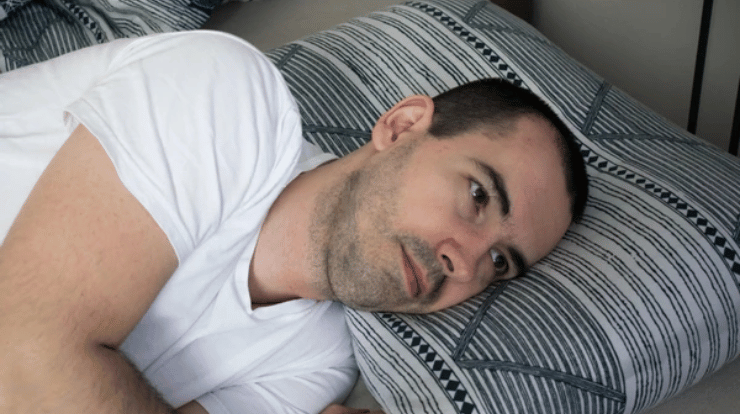
Sleeping is a natural and essential process that the body undergoes to rest and restore itself. While it may seem like a passive activity, sleeping actually involves various physiological processes that require energy, which means that you burn calories while you sleep.
However, the amount of calories burned during sleep is significantly less compared to when you’re awake and physically active. In this article, we’ll explore how many calories you burn while sleeping, how it compares to the number of calories burned during physical activity, and how sleep impacts weight management and overall health.
Do You Burn Calories When You Sleep?
Yes, your body burns calories while you sleep. Your body requires energy to carry out various functions even while you’re asleep, such as breathing, pumping blood, and repairing cells. This energy is derived from the calories in the food you eat, and your body continues to burn calories to keep these functions going throughout the night.
The number of calories you burn during sleep varies depending on various factors such as age, sex, weight, body composition, and metabolic rate. People with higher muscle mass tend to burn more calories than those with less muscle mass, as muscle burns more calories than fat.
How Many Calories do you burn when you sleep?
the number of calories burned during sleep can vary depending on various factors. However, as a general rule, the average person burns around 50-100 calories per hour of sleep. Therefore, if you sleep 8 hours a night, you can expect to burn anywhere from 400-800 calories during that time.
It’s important to note that this number is relatively small compared to the total number of calories your body burns throughout the day. For example, an average adult burns around 2000-2500 calories daily, and only 5-10% of those calories are burned during sleep.
Let’s take a closer look at the factors that can affect the number of calories you burn while sleeping:
1. Age:
As mentioned earlier, younger people tend to have a faster metabolic rate, which means they burn more calories while sleeping. This is because younger people have more active cells and require more energy to keep their bodies functioning properly.
2. Sex:
Men generally burn more calories than women due to their higher muscle mass. Muscle tissue burns more calories than fat tissue, which means that men with more muscle mass will burn more calories while sleeping.
3. Weight:
Heavier people burn more calories than lighter people while sleeping as they require more energy to maintain their body functions. This is because heavier people have more body mass to support and require more energy to carry out the same functions as lighter people.
4. Body composition:
People with higher muscle mass tend to burn more calories than those with less muscle mass, as muscle burns more calories than fat. Therefore, if you have a higher percentage of muscle mass, you will burn more calories while sleeping.
5. Metabolic rate:
Your metabolic rate is the rate at which your body burns calories to carry out its functions. People with a higher metabolic rate tend to burn more calories while sleeping than those with a slower metabolic rate.
It’s also important to note that factors such as diet and exercise can also affect the number of calories you burn while sleeping. For example, if you eat a high-protein diet and engage in strength training exercises, you can increase your muscle mass and, in turn, increase the number of calories you burn while sleeping.

How many calories do I burn sleeping calculator?
There are several online calculators available that can help you estimate the number of calories you burn while sleeping. However, it’s important to note that these calculators provide rough estimates and may not be entirely accurate as the number of calories burned during sleep can vary depending on various factors such as age, sex, weight, body composition, and metabolic rate.
One simple way to estimate the number of calories you burn while sleeping is to use the formula:
Calories burned per hour of sleep = weight in pounds x 0.48
For example, if you weigh 150 pounds, you would burn approximately 72 calories per hour of sleep (150 x 0.48). Therefore, if you sleep 8 hours a night, you would burn around 576 calories (72 x 8) during that time.
Keep in mind that this formula provides a rough estimate and may not be entirely accurate for everyone. Factors such as sleep quality, duration, and body composition can also affect the number of calories burned during sleep.
Calories burned sleeping vs awake
The number of calories you burn while sleeping is significantly less than the number of calories you burn while awake and active. When you’re awake, your body is constantly engaged in various physical activities such as walking, sitting, standing, and other movements that require energy. Therefore, your body burns more calories while you’re awake and active compared to when you’re sleeping.
Does Sleeping burn fat?
Sleeping alone doesn’t burn fat directly, but it can indirectly contribute to fat loss. When you sleep, your body undergoes various physiological changes that can affect your metabolism, hormones, and energy levels, which in turn can impact your weight and fat loss goals.
One of the primary ways that sleep can affect fat loss is through the regulation of hormones that control appetite, metabolism, and energy expenditure. For example, sleep deprivation can disrupt the balance of hormones that regulate hunger and fullness, leading to increased food intake and reduced energy expenditure, which can result in weight gain and fat accumulation over time.
On the other hand, getting adequate sleep can help regulate hormones that promote fat loss, such as growth hormone and cortisol. Growth hormone is essential for muscle growth and repair, which can help increase your metabolic rate and burn more calories even while you’re resting. Cortisol, when released in moderation, can also help mobilize stored fat for energy and reduce inflammation in the body.






